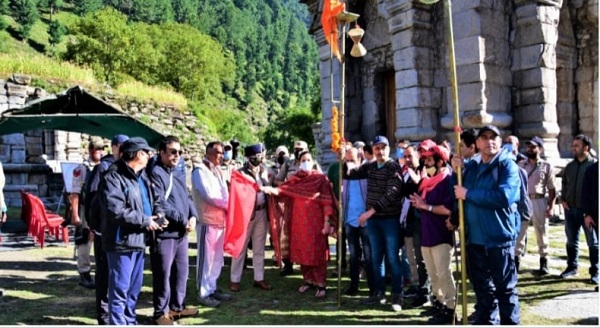London, (Samajweekly) The 1971 India-Pakistan war was a watershed moment in the ties between the two nations.
On June 27, 1972, on the eve of his departure for then Simla for talks with Indian Prime Minister Indira Gandhi, Pakistan President Zulfiqar Ali Bhutto in a broadcast on Radio Pakistan said: “The war we have lost was not of our making. I had warned against it but my warning fell on deaf ears of a power drunk Junta. They recklessly plunged our people into the war and involved us in an intolerable surrender which lost us half our country.”
It took seven years and a coup d’etat for the Pakistani army to reassert itself; and with its recapture of power began a policy of trying to avenge 1971, not by war, but by chipping away at India with a proxy war.
In 1983, the National Conference in Jammu & Kashmir won a second landslide in state elections. But their leader and Chief Minister, Farooq Abdullah, fell out with Indira Gandhi, who used her constitutional levers to dismiss his government the following year.
When Abdullah subsequently patched up with Indira Gandhi, many of his supporters disapproved of the reconciliation. Thus, when fresh elections took place in Jammu & Kashmir in 1987, a significant segment of the National Conference’s traditional voters turned against them.
The outcome, though, did not reflect this. In others words, it is widely believed the results were rigged. The parties that suffered went on to constitute the separatist All Party Hurriyat Conference.
In February 1989, Soviet troops withdrew from Afghanistan. People in India-controlled Kashmir were pummelled with the propaganda that if Pakistan could have defeated the Soviet Union, Indian soldiers would be no match for their Pakistani counterparts in the event of an invasion by the Pakistan army.
Thus, even pro-India Kashmiris became nervous and felt it was better to be on the right side of such a war than the wrong one. It is in this fertile atmosphere of alienation and fear that an uprising occurred in August 1989 in Indian-controlled Kashmir.
During the 1988 to 1992 presidency of George Bush Senior, the US administration placed Pakistan on a watch list of countries potentially sponsoring terrorism, without definitively designating it as a state sponsor of terrorism.
I asked a senior American diplomat posted in Islamabad what persuaded Bush to issue such a caution. He replied, the President had “credible evidence” to do so.
I probed the diplomatist further. He revealed US satellites had picked up movement of Pakistani army trucks delivering weapons close to the Line of Control with India in Kashmir. The weapons had been supplied by western countries to Pakistan for distribution to the Afghan Mujahideen. Instead, they were diverted to Kashmir.
That was the genesis of a proxy war, which included intimidating Kashmiri Pandits and effectively triggering their exodus from the Valley.
During negotiations at the Simla summit, Bhutto floated the idea of the Line of Control in Kashmir being converted into a “Line of Peace”.
General Pervez Musharraf’s formula in 2006 was broadly along similar lines. But then Prime Minister Manmohan Singh’s government ultimately found it difficult to trust a man who was instrumental for the Kargil intrusion in 1999.
It has been the belief in the power structure in Pakistan that militancy in India-controlled Kashmir is justified. However, as the European Union has laid down, where there’s an opportunity to enter office through the ballot box – as there was up to 2019 – violence is unjustified.
The Election Commission of India has largely ensured fair elections in Jammu & Kashmir since the 1990s. In India’s northeastern states, separatist parties have fought elections and formed governments.
The Scottish National Party has achieved the same in Britain. Sinn Fein, which believes in Northern Ireland breaking away from Britain and merging with the Republic of Ireland, has been a constituent in the ruling coalition in Northern Ireland.
The legitimacy of fissiparous forces in Jammu & Kashmir can only be established by them, proving that they indeed enjoy majority support.
In the one and only opinion survey carried out on both sides of the Line of Control in Kashmir — by King’s College London and Chatham House in 2010 — 44 per cent of people in Pakistan-controlled Kashmir wanted independence as opposed to 43 per cent in India-controlled Jammu and Kashmir. Two per cent of people in India-controlled Jammu & Kashmir wanted to join Pakistan, compared to 1 per cent of people in Pakistan-controlled Kashmir.
Such figures may have changed. But India and Pakistan are obliged to sort out their disputes under the Simla Agreement, which states, “The two countries are resolved to settle their differences by peaceful means through bilateral negotiations.”
This Agreement is registered as a Treaty with the United Nations under Article 102 of the UN Charter. Therefore, it is binding on both nations.










